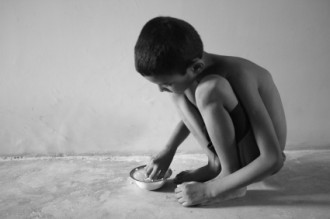More than 110,000 families in Mysore district were recipients of the State Government's largesse on 3 March, at an annual function where the Chief Minister hands out benefits under different schemes to them. This event has now been labeled Sarkari Savalattu Santhe (literally, Government Fair of Schemes).
It is truly a market, wherein different products are being made available to people. The only difference is that you cannot get what you really want and need, but will have to take what a patronizing Government is willing to give. I am not trying to make a point that many of the people receiving these much-needed benefits are undeserving of getting them. I am only trying to argue the case that the Government may not have truly understood the difference between political doles and true development.
Every single party and political leader of the recent past has been guilty of indulging in such theatrics where thousands of crores of rupees worth of goods and services are distributed to 'beneficiaries'. We have seen many such mega-events take place in different district headquarters, with either the Chief Minister himself or the district minister-in-charge personally 'gifting' away these Government benefits.

Despite endless schemes to 'benefit' the poor, why is each new generation as poor as the one before it, or worse?
The state of Karnataka has 1.2 crore families, and the Government has determined that 98 lakh families are living below the poverty line. It is indeed ironical that on the one hand the Government touts the State as one of the most progressive in the country, but on the other hand has tacitly distributed BPL cards to nearly 80 per cent of the population. Clearly, a big chunk of BPL card holders (estimated to be 49 per cent) are not truly poor, but an even greater tragedy is that despite this generous distribution, five per cent of the real poor do not have a BPL card. In such a scenario, one can imagine whose benefit these schemes are truly serving.
If money spent on such tamashas had truly benefited the poor, one wonders why we still have so much poverty around us, and why would we need an annual fair of these things? Every time a new Chief Minister takes over in Government - and this is true all over India - he is quick to have special packages for his native district. Thousands of crores of funds from the public exchequer is treated as their own personal funds and sanctioned to keep their constituents happy and satisfied. Most of the decision-making is done based on political realities, rather than on the development consequences that one wants to achieve.
Apart from treating our own citizens as mere recipients of their patronage, these events also snatch away people's dignity and self-respect. How will our MLAs feel if they are made to stand in line and receive their iPads and laptops from a more-than-generous Government under full public and media glare? Our deserving poor cannot be made to feel like mere beneficiaries and given doles under such visibility and public gaze. They need the help of a Government machinery that understands their poverty and gently facilitates their social and economic mobility upwards towards self-reliance.
Mahatma Gandhi always said that our poor had to be treated with the greatest respect and the State should never make a mockery of their poverty. What events like these do is exactly the opposite. In order to achieve narrow political gains, it makes the poor vulnerable and robs them of their dignity and self-respect. It also dis-empowers them and takes away the human spirit of enterprise.
What our Chief Minsters and their cabinet colleagues have to ask themselves is whether their numerous development schemes are truly initiating and promoting the needed development? Is the return on investment proportional to the thousands of crores of rupees spent? Who is to ensure accountability in the system? Will the political or the bureaucratic executive take the responsibility of ensuring that this money will be well spent and every person receiving the benefits is truly deserving of the same and will join the economic mainstream?
We have had numerous such events happen in the past and we as citizens of this State would like to know how much of poverty have they helped in alleviating. Instead of mere doles, shouldn't the Government take a fresh look at its own budgetary allocations to the poor, the development of the scheduled castes and tribes, as well as the marginalized?
It is also the Government's responsibility to inform the citizenry who is paying for these mega events. Is it coming out of the public exchequer, and if yes, under which head of account is it accounted for? If not, are the myriad contractors involved in the scheme paying for the same (as is the case generally)? We have the right to know.
Unless the Government decides that its concern for development goes beyond petty politics and revolves around genuine social concern for the poor, and
is willing to subject itself to measurement and accountability, good governance will continue to be a casualty. The State will only be helping its
citizenry to merely cope with poverty instead of permanently climbing out of it.

